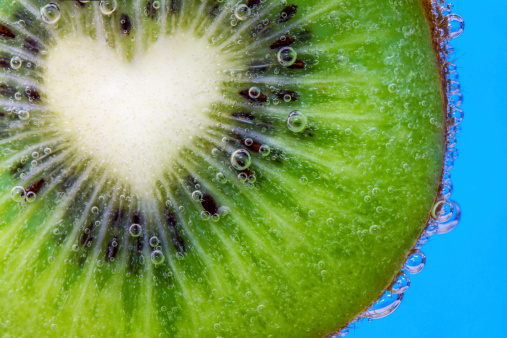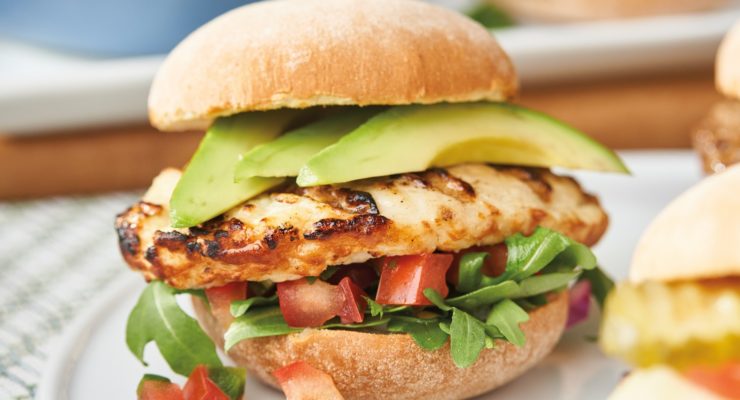The 7 Most Important Nutrients for Men
Article posted in: Nutrisystem for Men
You don’t have to look hard to see the basic differences in the body composition of the average woman and man. She has between 25 and 31 percent fat, his ranges from 18 to 25 percent, according to the American Council on Exercise. That’s because males tend to have more muscle mass, as well as bigger bones. Men also face specific challenges when trying to shed excess pounds, like making sure they get all of the nutrients they need while adopting a more healthful diet.
These are the seven most important nutrients for men:
1. Protein
Why men need it: During weight loss, your body burns both fat and muscle. Protein is the building block of muscle, so an adequate supply is especially critical for men to maintain their mass. Protein also provides a long-lasting source of energy, so men feel strong and alert between meals.
What to eat: Choose lean types of protein that provide you with energy, but not tons of saturated fat. On Nutrisystem, we call these lean proteins PowerFuels because they fuel you up and make you feel powerful enough to face your day. PowerFuels also include healthy fats.
Trimmed beef or pork, skinless chicken or turkey breast or fish are all healthy, protein-rich options. Low fat dairy foods, beans and nuts are other good sources.
2. Fiber
Why men need it: Because of men’s overall bigger size, the average male needs more calories each day than the average female. Men’s bodies also require more fiber, to help them gradually absorb the nutrients in their food without dramatic peaks and valleys in their energy levels.
What to eat: The best sources of fiber are fresh vegetables and fruit. Non-starchy vegetables such as leafy greens, carrots, and peppers, deliver the most fiber and other nutrients without breaking the calorie bank. Apples, bananas and other varieties of fruit great choices since they are high in fiber and nutrients. Black beans, other legumes and whole grains are other healthy, high-fiber foods.
On Nutrisystem, we refer to these nutrient-rich foods as SmartCarbs. That’s because they measure low to medium on the Glycemic Index, which means they are digested more slowly, keeping you feeling fuller longer while promoting good health by delivering vitamins, minerals, fiber and other important nutrients. So eating these carbs is… well… smart.
How much: Men need roughly 30 to 38 grams of fiber daily. You get about four grams of fiber from an average apple or a bowl of oatmeal. A serving of pinto beans has a little under six.
3. Omega-3 Fatty Acids
Why men need it: While fats don’t sound desirable, omega-3s are essential to your health and your body can’t produce them on its own—meaning you must get these nutrients from food. Omega-3s are particularly important to men because they play an integral role in regulating cholesterol, blood clotting and inflammation. High cholesterol and persistent inflammation contribute to many ailments prevalent in males, such as heart disease, one of the leading causes of death in men.
What to eat: Cold-water fish such as salmon, sardines and albacore tuna are rich sources of omega 3s. You can also get the nutrient from flax seeds, walnuts and leafy green vegetables. Many people take fish oil supplements, if they don’t often eat these other foods.
4. Potassium
Why men need it: Your body needs this mineral to help it maintain a regular heartbeat and contract all of the other muscles in your body. But it is particularly critical to balance the salt in your system—excess sodium can lead to high blood pressure and heart disease, common problems for overweight men.
What to eat: Bananas, potatoes and avocados provide you with a healthy supply of potassium. Lentils and other beans, cantaloupe, squash and apricots are other good sources.
5. Magnesium
Why men need it: We don’t hear much about magnesium, but it plays a central role in many bodily functions, from metabolism to sleep cycles to blood pressure. Cardiovascular disease, type 2 diabetes, migraine headaches and even muscle aches are associated with below optimal levels of magnesium. Regularly eating high-magnesium foods is critical because it can play a significant role in stress reduction. Some sources suggest that magnesium can help keep stress hormones from passing into the brain. So this is an especially important nutrient for men with very stressful, fast-paced jobs.
What to eat: Black beans and halibut are especially high in magnesium, but you can also get the mineral from leafy greens (the darker the better), nuts and seeds, as well as yogurt.
6. Vitamin D
Why men need it: Nutrients often work best in collaboration with others. Vitamin D, for instance, is essential for your body to absorb calcium, the primary mineral component of your bones. A study reported in the medical journal Circulation determined that people with vitamin D deficiency were up to 80 percent more likely to suffer a heart attack or stroke, because the nutrient helps to reduce inflammation of your arteries.
What to eat: Your body produces vitamin D when you get 10 to 30 minutes of sunshine each day. That can be a challenge in winter or when you work from sun-up to sundown. And as you get older, your body’s ability to manufacture the vitamin diminishes. Milk and other dairy products fortified with vitamin D are the best food sources.
7. Selenium
Why men need it: A trace mineral, selenium is a critical component of your thyroid gland, which controls your metabolism and growth. For men, the mineral is especially important for keeping their reproductive organs functioning properly, while preventing rheumatoid arthritis and heart disease.
What to eat: Lean beef and poultry, cold-water fish, nuts and whole grains provide a healthy amount of selenium.
How can men be sure they’re getting all of the nutrients they need to stay healthy, while they’re losing weight? A Nutrisystem plan designed just for men provides hearty meals and satisfying snacks, along with all of the protein, fiber, vitamins and minerals to keep men strong and active.










